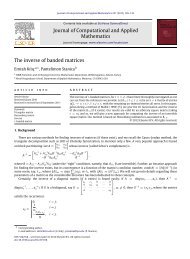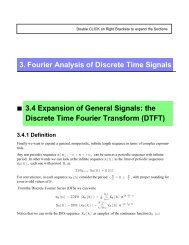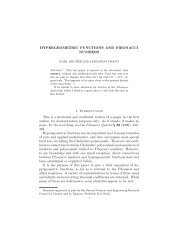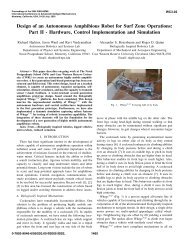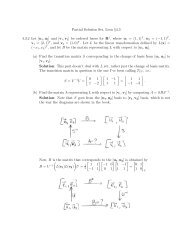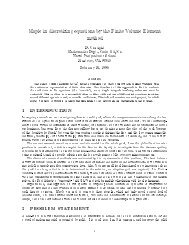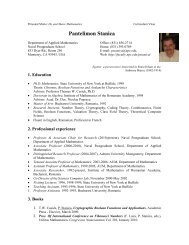A View of Cyberterrorism Five Years Later
A View of Cyberterrorism Five Years Later
A View of Cyberterrorism Five Years Later
You also want an ePaper? Increase the reach of your titles
YUMPU automatically turns print PDFs into web optimized ePapers that Google loves.
emoving jihadist content from other sites. The premise is that by getting al-Qa‟ida <strong>of</strong>f the net,<br />
they will be unable to post materials and engage with potential recruits. Further, communications<br />
among jihadists will be severely hampered, making it more difficult for them to plan and organize<br />
actions. Internet Service Providers already practice some denial by shutting down websites that<br />
directly advocate violence or provide support to known terrorist organizations in violation <strong>of</strong> laws.<br />
In addition, sites such as YouTube help by removing videos that train terrorists or incite violence.<br />
However, the sites and content <strong>of</strong>ten reappear elsewhere, so the effects may not last. Another<br />
problem with denial is that much <strong>of</strong> the content posted by jihadists is permissible under principles<br />
<strong>of</strong> free speech. Denial also has adverse effects on intelligence collection, potentially taking away<br />
valuable sources <strong>of</strong> information as sites move and jihadists move further underground on the<br />
Internet or <strong>of</strong>f the net entirely. Further, denial requires international cooperation to be fully<br />
successful, as jihadist accounts and websites can be hosted all over the world. Such cooperation<br />
can be difficult to achieve.<br />
Still, denial can impair al-Qa‟ida‟s efficiency and undermine trust in their online sites. To<br />
illustrate, in September 2008, al-Qa‟ida‟s media arm was severely hampered when several <strong>of</strong> its<br />
key websites went down. A month later, only one forum, al-Hesbah, was back online. The effect<br />
was to curtail the dissemination <strong>of</strong> videos and other materials from al-Qa‟ida‟s leadership and to<br />
raise suspicions about infiltrators and the authenticity <strong>of</strong> look-alike sites (Knickmeyer, 2008). On<br />
one jihadist forum, a participant posted a message expressing alarm over the attacks and urging<br />
the recruitment <strong>of</strong> computer specialists to address the problem. He asked what would happen if<br />
they had no jihadist forums or websites, and then answered that it „would bring all communication<br />
between the mujahidin and the children <strong>of</strong> the Islamic nation to an end.‟ He said it would „delay<br />
the carrying out <strong>of</strong> operations and the transmission <strong>of</strong> jihadist news‟ (OSC, 2008c).<br />
The third strategy, subversion, involves infiltrating al-Qa‟ida forums, disrupting their<br />
operations, and undermining al-Qa‟ida objectives, for example, by injecting misinformation into a<br />
forum discussion in order to erode trust in a leader or sow seeds <strong>of</strong> discord. One drawback <strong>of</strong><br />
24



